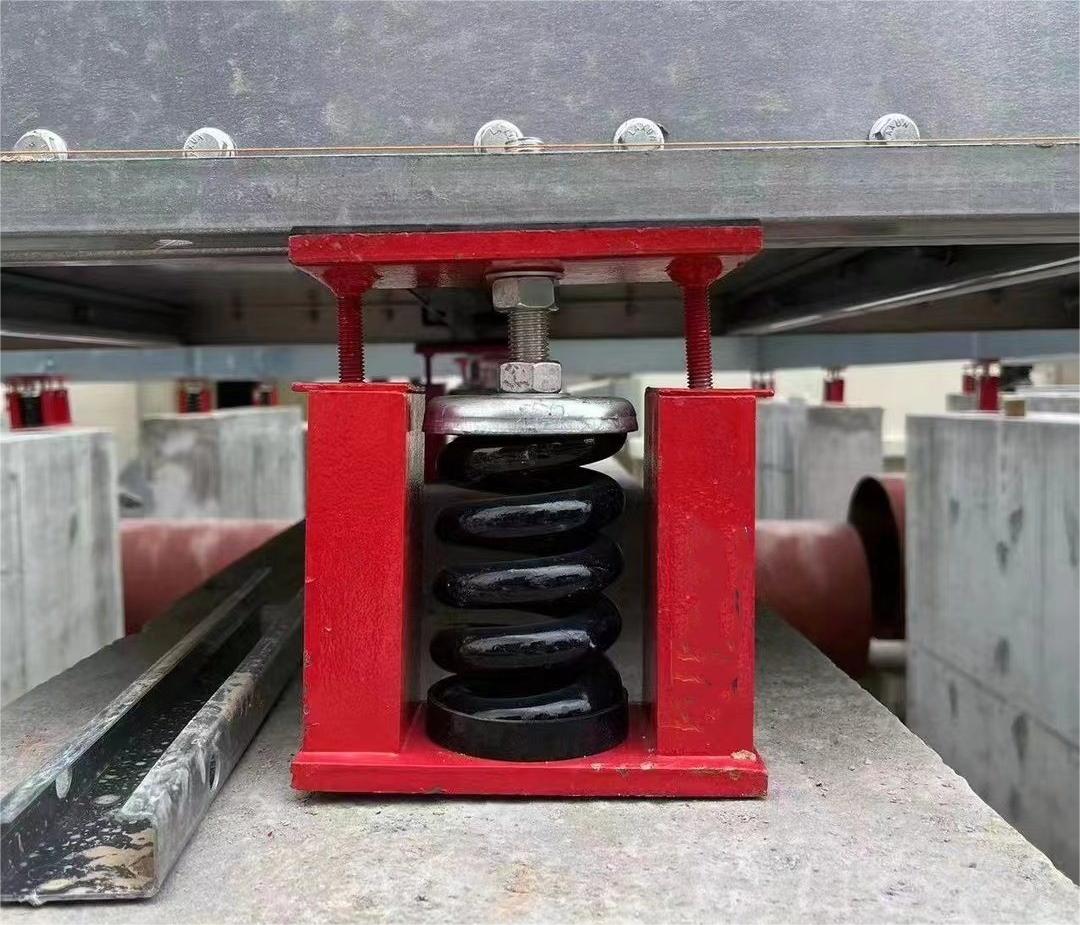- English
- Español
- Português
- русский
- Français
- 日本語
- Deutsch
- tiếng Việt
- Italiano
- Nederlands
- ภาษาไทย
- Polski
- 한국어
- Svenska
- magyar
- Malay
- বাংলা ভাষার
- Dansk
- Suomi
- हिन्दी
- Pilipino
- Türkçe
- Gaeilge
- العربية
- Indonesia
- Norsk
- تمل
- český
- ελληνικά
- український
- Javanese
- فارسی
- தமிழ்
- తెలుగు
- नेपाली
- Burmese
- български
- ລາວ
- Latine
- Қазақша
- Euskal
- Azərbaycan
- Slovenský jazyk
- Македонски
- Lietuvos
- Eesti Keel
- Română
- Slovenski
- मराठी
- Srpski језик
How to improve the stability of equipment? The importance of vibration isolators to machinery and equipment
2024-07-09
Methods to Improve Equipment Stability:
1. Optimize Equipment Structure Design
Adopt a reasonable mechanical structure to ensure a firm and reliable connection between components. For example, when designing a machine tool, using an integrated bed structure can enhance the overall rigidity and stability.
Reduce cantilever structures and overly long transmission components to minimize deformation and vibration caused by uneven force.
2. Select High-Quality Components
Choose components with high precision, good wear resistance, and high strength. Key components like bearings and lead screws, high-quality products can reduce wear and errors and enhance the stability of the equipment.
For instance, in automotive manufacturing, using high-precision engine components can ensure the stability and reliability of the engine during long-term operation.
3. Conduct Precise Installation and Debugging
Install the equipment strictly in accordance with the installation manual and standard operation procedures to ensure the position and fit accuracy of each component.
Debug the parameters of the equipment, such as speed, pressure, temperature, etc., to make it operate in the best working state. For example, when installing an automated production line, precisely adjust the synchrony between each workstation to improve production efficiency and stability.
4. Regular Maintenance and Care
Develop a scientific maintenance plan, including cleaning, lubrication, inspection, and replacement of wearing parts.
Discover and handle potential problems of the equipment in a timely manner to prevent failures. For example, regular cleaning and lubrication of the fan blades can ensure its stable operation.
5. Improve the Working Environment
Control environmental factors such as temperature, humidity, and dust to reduce their impact on the equipment.
Provide a stable power supply to avoid interference caused by voltage fluctuations.
The Importance of Vibration Isolators to Machinery and Equipment:
1. Reduce Vibration Transmission
Machinery and equipment generate vibrations during operation. If these vibrations are directly transmitted to the infrastructure or adjacent equipment, it may cause resonance, resulting in greater damage and noise. Vibration isolators can effectively absorb and isolate vibrations, reducing vibration transmission. For example, when a punch press is working, the strong vibrations produced will not have a significant impact on the structure of the factory building due to the effect of the vibration isolator.
For some equipment sensitive to vibrations, such as precision measuring instruments and lithography machines, vibration isolators can ensure they maintain a high-precision working state in a micro-vibration environment.
2. Protect Equipment and Components
Excessive vibrations will accelerate the wear and fatigue of equipment components, shortening the service life of the equipment. Vibration isolators can reduce the vibration amplitude, alleviate the impact and stress on the components, thereby extending the maintenance cycle and service life of the equipment. For example, in textile machinery, vibration isolators can reduce the wear of high-speed rotating components and reduce maintenance costs.
3. Improve the Precision and Performance of Equipment
For equipment requiring high-precision processing or measurement, vibrations will lead to increased errors. Vibration isolators can provide a relatively stable working platform, improving the processing precision and measurement accuracy of the equipment.
For example, in a CNC machine tool, vibration isolators can ensure the stability of the cutting tool during the cutting process, thereby improving the processing quality of the parts.
4. Reduce Noise
Vibration is often accompanied by the generation of noise. Vibration isolators can reduce the noise level during equipment operation while reducing vibrations, improving the working environment.
Like the fans in ventilation systems, by installing vibration isolators, the noise generated during fan operation can be significantly reduced, improving the comfort of the workplace.
In conclusion, vibration isolators play an indispensable and important role in the stable operation, precision maintenance, service life extension, and noise control of machinery and equipment.





